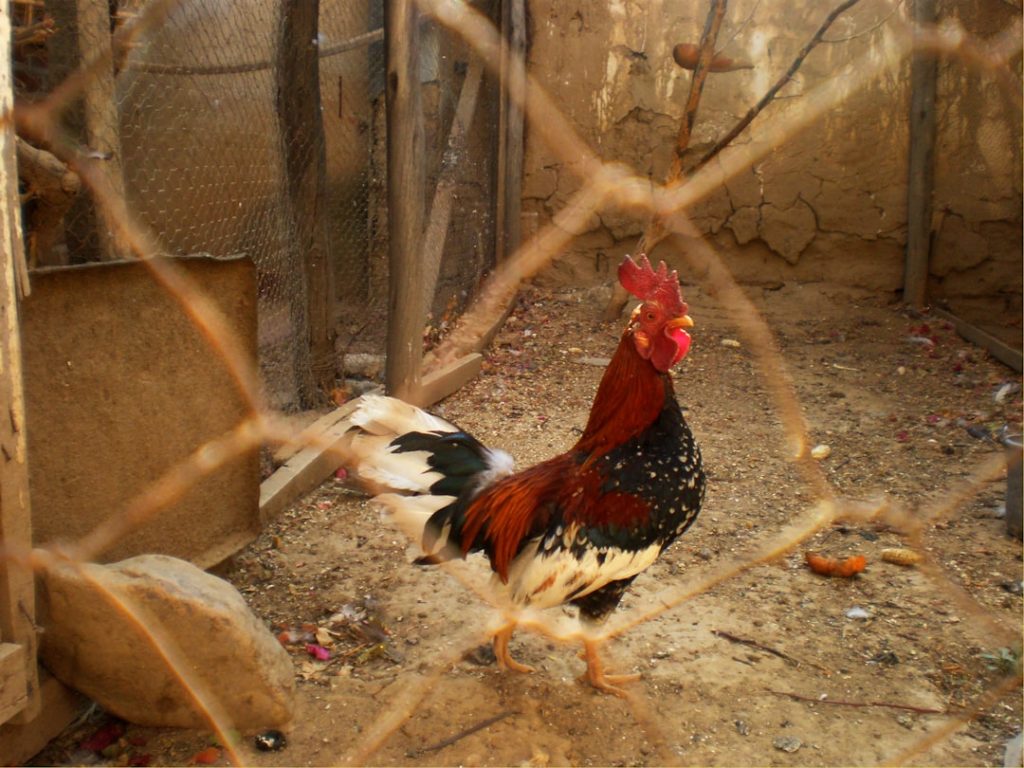Raising chickens in residential areas can present challenges that require careful consideration. Noise is a primary concern, as chickens, particularly roosters, can be loud, especially during early morning hours. The odor from chicken waste may also be problematic for neighbors.
Additionally, chicken coops can attract pests like rats and flies if not properly maintained. To successfully keep chickens in a residential setting, owners must address these potential issues. This includes implementing proper waste management practices, providing adequate housing, and ensuring that the chickens have sufficient space to roam and exhibit natural behaviors.
It’s also crucial to be aware of and comply with local regulations regarding backyard poultry. Understanding chicken behavior and needs is essential for responsible ownership. Chickens require appropriate shelter, consistent access to food and water, and space for foraging.
Neglecting these requirements can lead to stress-related behaviors such as excessive vocalization or aggression. Educating oneself on proper chicken care and management is vital for maintaining the birds’ well-being and minimizing conflicts with neighbors. By addressing these concerns proactively, chicken owners can create a harmonious environment that benefits both their flock and the surrounding community.
Table of Contents
- 1 Establishing Boundaries
- 2 Providing Proper Enclosures
- 3 Distracting and Redirecting Chickens
- 4 Communicating with Neighbors
- 5 Seeking Professional Help
- 6 Respecting Local Laws and Regulations
- 7 FAQs
- 7.1 What are some effective ways to keep chickens out of a neighbor’s yard?
- 7.2 Are there any natural deterrents that can be used to keep chickens out of a neighbor’s yard?
- 7.3 What are some legal considerations to keep in mind when trying to keep chickens out of a neighbor’s yard?
- 7.4 How can I train my chickens to stay within my property boundaries?
- 7.5 What are some potential consequences of not keeping chickens out of a neighbor’s yard?
Key Takeaways
- Understanding the natural instincts and behaviors of chickens is crucial for providing proper care and management.
- Establishing clear boundaries for the chickens’ living area helps to keep them safe and contained.
- Providing proper enclosures, such as coops and runs, is essential for protecting chickens from predators and the elements.
- Distracting and redirecting chickens with toys and treats can help prevent destructive behaviors and keep them entertained.
- Communicating with neighbors about your chickens and addressing any concerns can help maintain positive relationships within the community.
Establishing Boundaries
Establishing Boundaries
This can include setting limits on the number of chickens kept, as well as the location and size of their enclosure. It’s crucial to consider the proximity of neighboring properties and ensure that the chickens’ enclosure is situated in a way that minimizes disturbances to others.
Effective Communication
Communication with neighbors is also vital in establishing boundaries. It’s essential to have open and honest conversations with neighbors about your plans to keep chickens, and to address any concerns they may have.
Fostering Positive Relationships
Being transparent about your intentions and willing to listen to your neighbors’ feedback can go a long way in fostering positive relationships and addressing any potential issues before they escalate.
Providing Proper Enclosures

Proper enclosures are essential for keeping chickens in a residential area. This includes providing a secure coop for the chickens to roost at night, as well as a fenced outdoor area for them to roam during the day. The coop should be well-ventilated and provide protection from predators, while the outdoor area should be spacious enough to allow the chickens to forage and exercise.
It’s important to regularly clean and maintain the chicken coop and outdoor area to minimize odors and prevent the buildup of waste. Proper waste management is essential for minimizing potential conflicts with neighbors, as the smell of chicken waste can be a major concern in residential areas.
Distracting and Redirecting Chickens
Chickens can be easily distracted and redirected with the use of enrichment activities and toys. Providing items such as hanging treats, mirrors, or even simple objects like a cabbage on a string can help keep chickens entertained and prevent them from becoming bored and engaging in disruptive behaviors such as excessive vocalization. Additionally, providing ample space for chickens to roam and forage can help prevent boredom and reduce the likelihood of behavioral issues.
Allowing chickens access to a variety of natural materials such as grass, dirt, and pecking stones can also help keep them occupied and prevent them from becoming overly vocal or aggressive.
Communicating with Neighbors
Open and honest communication with neighbors is essential when keeping chickens in a residential area. It’s important to address any concerns they may have and be willing to make adjustments to minimize potential disturbances. This can include discussing potential noise mitigation strategies, such as limiting the number of roosters kept or providing soundproofing for the chicken coop.
It’s also important to be proactive in addressing any issues that may arise. If a neighbor approaches you with a concern about your chickens, take the time to listen to their perspective and work together to find a solution that is mutually acceptable. Being responsive and considerate of your neighbors’ concerns can go a long way in maintaining positive relationships and preventing conflicts.
Seeking Professional Help

Addressing Health and Behavioral Concerns
In some cases, it may be necessary to seek professional help in addressing issues related to keeping chickens in a residential area. This can include consulting with a veterinarian or animal behaviorist to address any health or behavioral concerns with the chickens.
Ensuring Compliance with Local Regulations
Seeking guidance from a legal professional can also be valuable in ensuring compliance with local regulations. This can help chicken owners avoid any potential legal issues and ensure that they are meeting all necessary requirements.
Resolving Conflicts with Neighbors
Professional help can also be valuable in addressing any concerns raised by neighbors. Mediation services or community outreach programs may be available to help facilitate productive conversations between chicken owners and their neighbors, and to find mutually acceptable solutions to any conflicts that may arise.
Respecting Local Laws and Regulations
Respecting local laws and regulations is essential when keeping chickens in a residential area. It’s important to familiarize yourself with any zoning ordinances or homeowners’ association rules that may apply to keeping chickens, and to ensure that you are in compliance with these regulations. This may include obtaining any necessary permits or approvals before keeping chickens, as well as adhering to any restrictions on the number of chickens kept or the location of their enclosure.
By respecting local laws and regulations, you can help minimize potential conflicts with neighbors and ensure that your chicken-keeping activities are conducted in a responsible and considerate manner. In conclusion, keeping chickens in a residential area can be a rewarding experience, but it’s important to understand the potential issues that can arise and take proactive steps to address them. By establishing clear boundaries, providing proper enclosures, and communicating openly with neighbors, chicken owners can help minimize potential conflicts and maintain positive relationships within their community.
Seeking professional help when needed and respecting local laws and regulations are also essential aspects of responsible chicken-keeping in a residential area. With careful consideration and proactive management, it is possible to keep chickens in a residential area while minimizing potential disturbances and fostering positive relationships with neighbors.
If you’re looking for ways to keep chickens out of your neighbor’s yard, you may also be interested in learning about the mating season for turkeys. Understanding the behavior and habits of different poultry can help you better manage your own flock and prevent them from causing issues for your neighbors. Check out this article on mating season for turkeys to gain more insight into the behavior of these birds.
FAQs
What are some effective ways to keep chickens out of a neighbor’s yard?
Some effective ways to keep chickens out of a neighbor’s yard include building a fence around your property, using chicken wire or netting to create a barrier, and providing your chickens with a designated area to roam and graze.
Are there any natural deterrents that can be used to keep chickens out of a neighbor’s yard?
Yes, there are natural deterrents that can be used to keep chickens out of a neighbor’s yard. Some examples include planting prickly bushes or shrubs along the property line, using motion-activated sprinklers, and applying natural repellents such as citrus peels or vinegar.
What are some legal considerations to keep in mind when trying to keep chickens out of a neighbor’s yard?
It’s important to be aware of any local ordinances or regulations regarding the keeping of chickens and the boundaries of your property. It’s also important to communicate openly with your neighbors and address any concerns they may have about your chickens encroaching on their property.
How can I train my chickens to stay within my property boundaries?
Training your chickens to stay within your property boundaries can be achieved through positive reinforcement, such as providing treats and rewards for staying within designated areas, and using deterrents such as noise or visual cues to discourage them from venturing into your neighbor’s yard.
What are some potential consequences of not keeping chickens out of a neighbor’s yard?
Not keeping chickens out of a neighbor’s yard can lead to strained relationships with your neighbors, potential legal disputes, and damage to your neighbor’s property. It’s important to be proactive in preventing your chickens from encroaching on your neighbor’s property to maintain a positive relationship with them.
Meet Walter, the feathered-friend fanatic of Florida! Nestled in the sunshine state, Walter struts through life with his feathered companions, clucking his way to happiness. With a coop that’s fancier than a five-star hotel, he’s the Don Juan of the chicken world. When he’s not teaching his hens to do the cha-cha, you’ll find him in a heated debate with his prized rooster, Sir Clucks-a-Lot. Walter’s poultry passion is no yolk; he’s the sunny-side-up guy you never knew you needed in your flock of friends!







